
A few weeks ago, a “semi-transient African American man” was found dead, killed from a knife wound behind the softball field of Las Palmas Park, located in San Fernando, CA. This was Fred “Freak” Smith, beloved guitarist who shaped the trajectory of mid-1980s punk in seminal bands like Beefeater, one of Washington, D.C.’s most inventive outfits. Having recently tried out for the band Romones, he had been living at Blake House, a group home, for a short stint, but wound up traversing the restless streets, seeking solace where he could.
The legacy of Beefeater is summed up most forcefully in their brilliant, genre-blurring LP House Burning Down, released on Dischord after the band’s demise in 1986. Combining hard funk, tribal stomp, raw jazz, shades of reggae, metallic leanings, and hardcore prowess, it’s an unmatched landmark, even now. Yet, the band was unstable (drummers came and went) and their fiery brand of politics set the teeth of both right-wing and left-wing punks on edge.
Smith, who changed his name to Freak, was the nimble musical backbone of the band. After joining Strange Boutique, he also helped pave the path of elegant post-hardcore music in D.C. as well. In the last half decade, he shredded in American Corpse Flower. And wherever he went, he was described as vivacious, spirited, generous, and skilled to the core.
As Bobby Sullivan, singer of Soulside and Rain Like the Sound of Trains, texted me earlier today: “Fred Smith was/is a larger-than-life character who literally lit up my youth. As a young person immersed in the D.C. punk scene, I had an extra in: my older brother lived at Dischord House. That meant I saw many of these bands form, from first talking about it in the living room, to practicing in the basement, and then taking it to the stage. Onam (Tomas Squip), the singer of Beefeater (Fred’s band at the time) also lived at Dischord House, and I spent many mornings with him when I would sleep over. My brother was a late sleeper, so I’d end up in the kitchen getting breakfast together and chatting about all the things I wanted to bounce off my older brothers and sisters – all the fine folks on the Dischord roster in the eighties.
Fred was somewhat of an aberration in that crew. Unabashedly cussing, drinking, being himself with no fear of judgment, he was something to behold. He was also a very skilled musician bringing a different flavor to that scene, which was sorely needed. My most poignant memory of him was when my band Soulside played with Beefeater at D.C. Space, I’m guessing in 1985. Scott, our guitar player, asked if he could borrow Fred Marshall half-stack and Fred replied, ‘Yeah mother fucker! And do what ever you have to do. Smash it if you need to!!!’ We all knew he was serious because that’s exactly the type of guy he was.”

BEEFEATER (photo by Al Flipside, 1985)
Other D.C. rockers like Jason Farrell of Swiz/Bluetip/Red Hare recall his outsized personality too. He emailed me this recollection:
“In 1984, I was a 14-year-old little skater kid just starting to go to shows, meeting other skaters/hardcore kids, taking every opportunity to stage dive, reveling in this crazy scene we stumbled into. I didn’t yet know much about the smaller D.C. bands that were percolating at the time (Rites of Spring, Beefeater) because all my friends and I were focused on whatever Government Issue and Marginal Man were doing.
“I’d seen Void a few times prior, but they didn’t really click with me until this one Wilson Center show… they were killing it. But apparently, it wasn’t enough to satisfy this big black dude who kept screaming and heckling them from the pit… ‘I better hear some motherfuckin’ ‘My Rules!!!’ Goddammit!!! If I don’t hear ‘My Rules’ in the next ten seconds I’m gonna kill every motherfucker…’ etc. It was kind of funny at first, but then it got kind of weird and a little scary.
“After a few songs like this, the air was tense …The singer seemed nervous. People didn’t know how to react… my little friends and I thought some shit was about to go down, and whatever it was would be beyond our capacity. But then they played ‘My Rules,’ the place exploded, and this crazy dude was overjoyed.
“In the time since, I have convinced myself that this crazy man was Fred ‘Freak’ Smith.”
Our counterculture needs to reckon with the future. More and more legacy punks deserve attention and advocacy. I have personally seen medical issues sideswipe those I have been lucky enough to play alongside—like members of Mydolls, Anarchitex, Big Boys, the Dicks, the Nerves, and the Hates. Others, including Dave Dictor of MDC, have partnered with me on projects. But all have dealt with dire health issues. As punks age, they often feel economic duress quite intensely. While some cities like Austin and Denton (both in Texas) have set up some infrastructure and programs for musicians, much more needs to be done.
In addition, punks who are female, queer, people of color, and/or disabled (some prefer the term differently abled) are even more at risk, due to ongoing discrimination. Thus, those fighting for justice, equality, and fairness should not merely protest Trump’s agenda, they need to react proactively to the issues affecting a growing segment of punk veterans struggling to pay bills, maintain homes and health, and stay free and productive.
Buying old records is not enough. Antifa is not enough. But each of us can change that.
—David Ensminger
This interview was originally published in Maximumrocknroll magazine #324, May (out of print).
David: Tell me about your musical heritage.
Freak: In very early 1983, I had just quit my government job at the Department of HUD. My dad was one of the first black Deputy U.S. Marshals. My dad was a doo-wop singer in the 1950s with Marvin Gaye and Van McCoy. The band was called the Starlighters and had a hit song called “The Birdland.” After they fizzled out, my dad got into law enforcement—the second generation of the Smith clan to do so. My mom was overseas working for the State Department (a gig she earned struggling in the ranks for at least fifteen or so years) while working for a 1960s program called “Voice Of America.” They divorced in 1971. As my dad kept stressing me to go into law enforcement as a lifelong career, the music side of me was tearing me apart. So, I finally decided for the latter.
And you started to immerse yourself in punk music?
All this punk rock shit was happening in D.C. as well as New York, Massachusetts, Michigan, Ohio, and L.A. I was so intrigued. It was kind of like the Hippie movement of the early 1960s but more radical and more in your face—”We are sick of this shit world, and we are now here to fucking change it whether you fucking like it or not” attitude. In this circle of mostly pale, tattered clothing, safety-pinned boys, aside from the few black fans in the audience, there was us! Gary Miller, aka Dr. Know of the Bad Brains, John Bubba Dupree from Void, Stuart Casson of Red C and the Meatmen, and the late great David Byers of the Psychotics, Chucky Sluggo, HR, and myself. Now I am just noting the guitar players, but would never, ever, exclude or forget Shawn Brown from Dag Nasty, their first original singer, and the late Nikki Young of Red C.
Through friends & some various acquaintances, more notably a guy named Ray Tony aka “Toast” and Eric Laqdemayo, aka Eric L from Red C, I heard about Madam’s Organ and the Atlantis Club. Soon I was auditioning at old Dischord house for a band that, from the start, proclaimed, “We are not here to make any money, are you in?” My brother Big Myke said, “Fuck this” and split. I hung around. Beefeater had an amazing, but at any given time, a very tumultuous run, with two vegan, militant vegetarians and throughout the two and a half years of our existence, three meat eating, substance abusing alcohol driven drummers, and myself!

What was it like to be a black punk in D.C.?
Let us all keep in mind that D.C. is what, 80 percent black, and this punk rock scene was fueled by angst-ridden white kids, a lot of whom I found out had fucking trust funds waiting for them when they became of legal adult age. Shit, I didn’t even know what a fucking trust fund was back then. It was very strange to be these “token” Negros playing in front of predominantly all white audiences, but we did it. As Shawn Brown and myself will attest, there were fucking issues man. A lot of fucking issues that we had to address when we did shows. When I first heard someone refer to me as the “negro Lemmy,” I was floored. I immediately lowered my mic stand down from the height that I set it. When I heard Shawn Brown being referred to as “the negro version of Ian MacKaye.” I was floored again. When I told him, he was taken aback but still plugged on. In retrospect, even in this new scene, I was always wondering, would racism ever end?!
Read the rest of this entry »

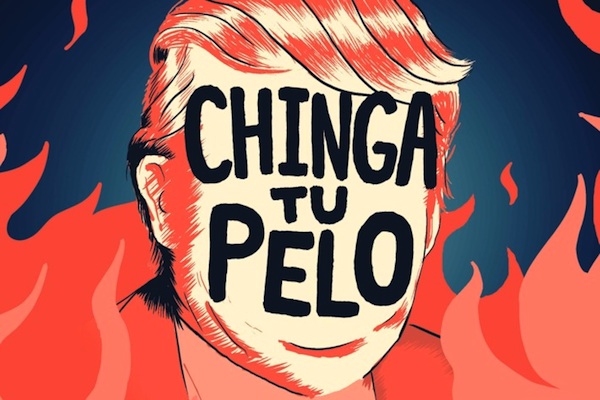

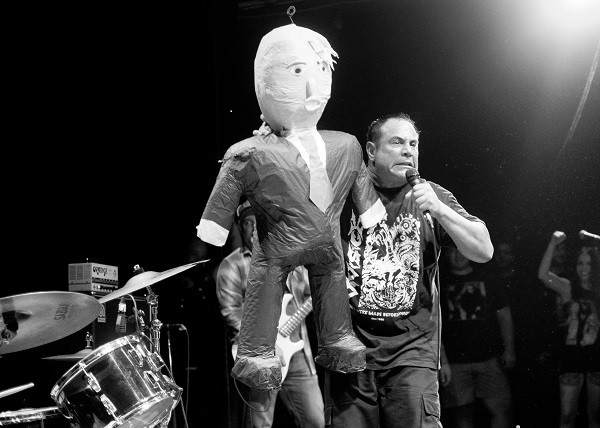
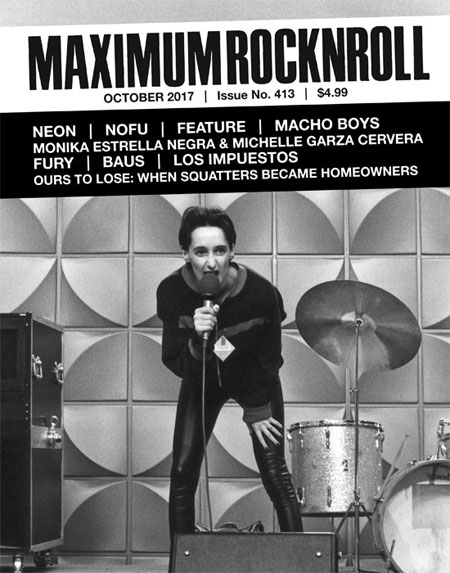
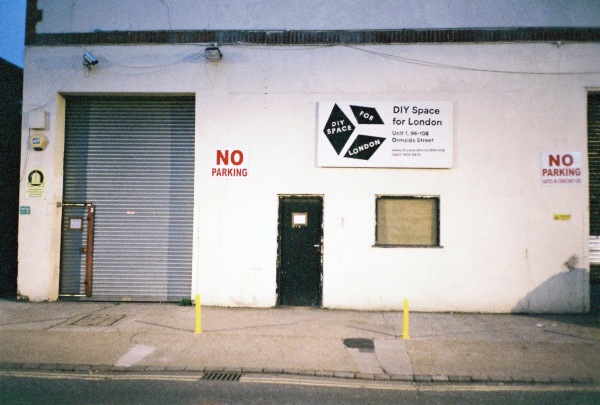
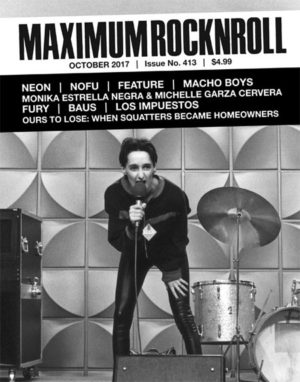






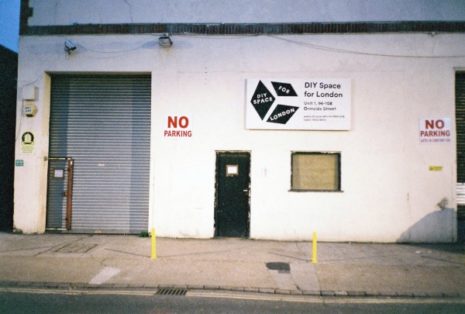

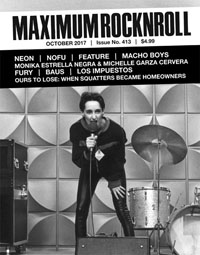

Recent Comments